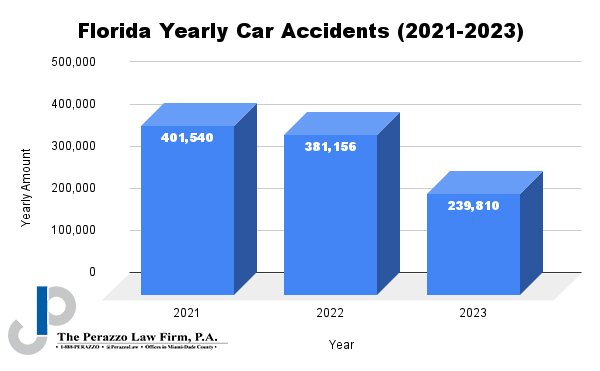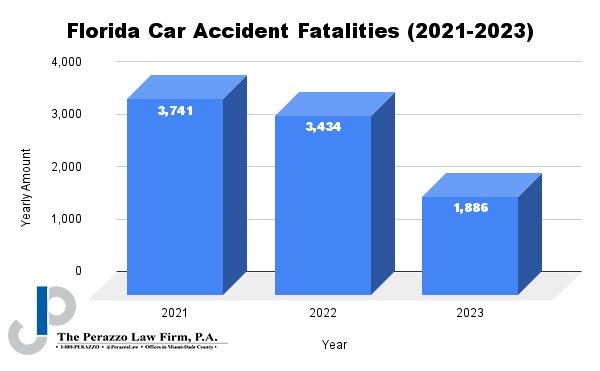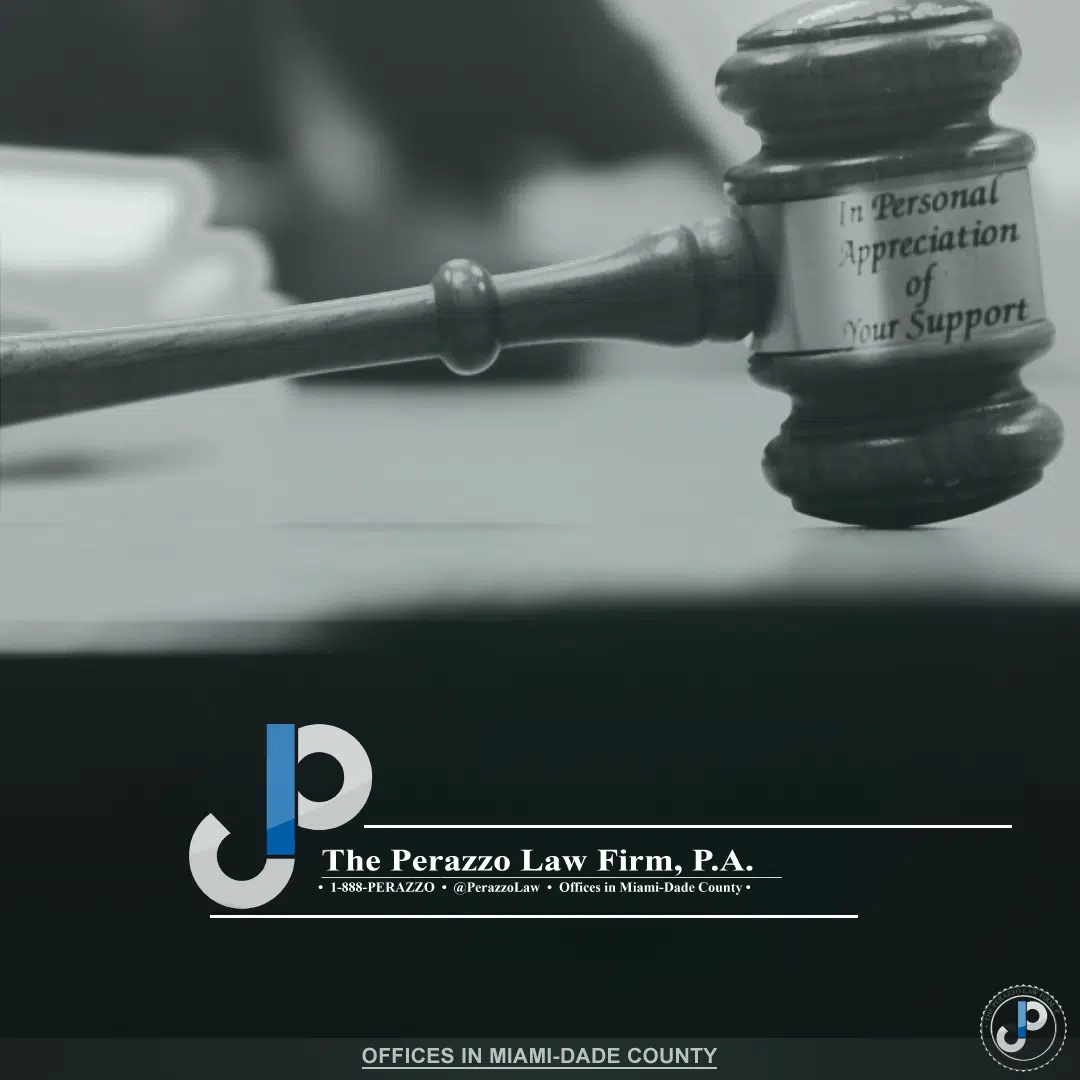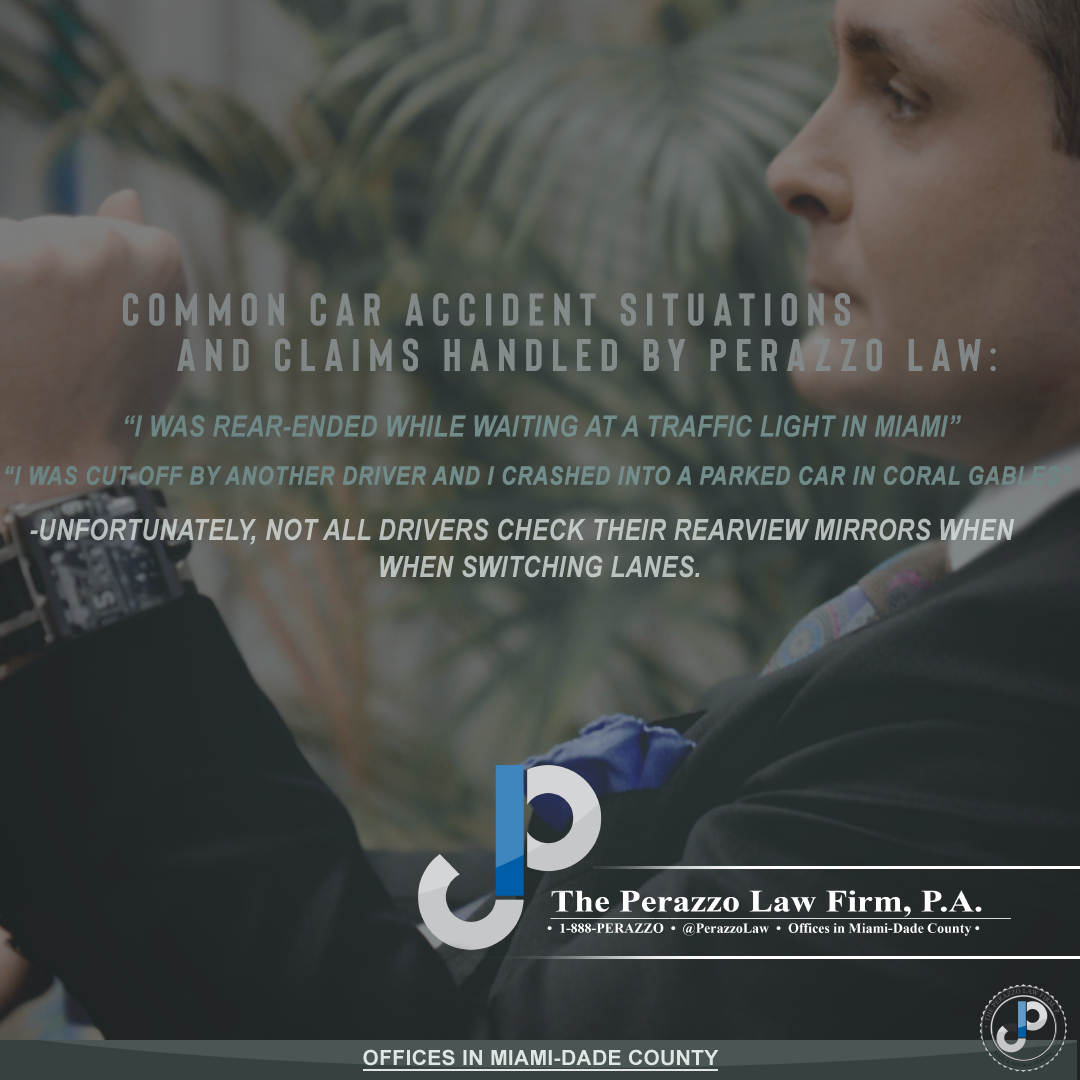Result-Driven Legal Solutions
Offering Comprehensive Legal Counsel Across Fort Lauderdale to Help Navigate You Through Every Legal Challenge
We’ll never share your info with anyone.

Fort Lauderdale Car Accident Lawyer
FIGHTING FOR YOUR RIGHTS AFTER A CAR ACCIDENT
The first moments following a car accident can be overwhelming. However, the coming days and weeks can be just as stressful and confusing as you start to look toward the future. A dedicated and experienced Fort Lauderdale car accident lawyer at the Perazzo Law Firm can help ease the burden brought on from car accidents that result in personal injuries or losses.
Car accidents are traumatic events that can leave individuals confused and overwhelmed. In Fort Lauderdale, the aftermath of a car accident follows a series of events that require careful navigation. Understanding what usually happens after an accident is crucial, and having an experienced Fort Lauderdale car accident lawyer by your side can make a significant difference in the outcome of your case.
Render Assistance
Call The Police
Exchange Information
Take Pictures
Talk To A Lawyer
If you’re involved in a car accident in Fort Lauderdale and aren’t to blame, you must act to protect your legal rights. The responsible party is the other driver, and you’ll need to initiate a personal injury claim with their insurance to pursue damages. Your actions at the accident scene are crucial in reinforcing your claim.
Document The Scene
Take photos and videos of the accident scene, vehicle damage, and any injuries. This visual evidence can be invaluable.
Contact The Police
Report the accident to the police promptly. Obtain a copy of the police report for documentation.
Exchange Information
Share names, contact details, and insurance information with the other party. Avoid discussing fault at the scene.
Get Witness Information
Collect names and contact information of any witnesses. Their statements can strengthen your case.
Seek Medical Attention
Visit a doctor as soon as possible, even for seemingly minor injuries. Documenting injuries is essential for your case.
Schedule a Consultation
Seeking legal advice early on is crucial. A Fort Lauderdale car accident lawyer can guide you on your rights and the next steps to take.
By taking these proactive steps, you not only ensure your immediate safety but also set the foundation for protecting your rights and securing fair compensation after a car accident.
BEFORE AN ACCIDENT, BE PREPARED
Driver License
Carrying a valid driver’s license is not just a legal requirement but also a fundamental aspect of responsible and safe driving. Your driver’s license serves as official identification, confirming that you have met the necessary requirements to operate a vehicle. In the event of an accident, having your driver’s license readily available streamlines interactions with law enforcement and ensures you can fulfill legal obligations promptly. It not only establishes your identity but also signifies that you are authorized to operate a motor vehicle, helping to avoid potential legal complications.
Proof Of Insurance
Proof of insurance is a vital document that demonstrates financial responsibility in the unfortunate event of a car accident. Keeping your insurance information easily accessible ensures that you can promptly provide this crucial documentation to law enforcement, other involved parties, or insurance representatives at the scene. This helps expedite the claims process and establishes your compliance with legal requirements. Additionally, quick access to proof of insurance facilitates efficient communication with other parties involved, contributing to a smoother resolution of the post-accident proceedings.
Emergency Tools
Being prepared for unforeseen emergencies is a key aspect of responsible driving. Having emergency tools such as a first aid kit and flashlight in your car can be invaluable in various situations. In the aftermath of an accident, a first aid kit can provide immediate assistance for minor injuries until professional medical help arrives. A flashlight becomes crucial, especially in low-light conditions or during nighttime accidents, aiding visibility and safety. These tools not only contribute to your well-being but also allow you to assist others involved in the accident, fostering a sense of community and care during challenging times.
Phone For Pictures
In the age of technology, a smartphone can be a powerful tool in the aftermath of a car accident. Using your phone to capture pictures serves as a visual record of the accident scene, vehicle damage, and any injuries sustained. These images can serve as crucial evidence when dealing with insurance claims, legal proceedings, or disputes about the sequence of events. Photographs can help establish the extent of damage, contributing to a fair assessment of compensation. Additionally, they provide a documented account of the accident, which can be crucial in situations where memories may fade or details become blurred over time.
It’s also vital to stay current on your insurance coverage and carry Uninsured/Underinsured Motorist (UM/UIM) coverage in case an uninsured driver hits you. In the aftermath of a car accident, Uninsured Motorist Coverage (UM) and Underinsured Motorist Coverage (UIM) play a crucial role in protecting you from financial burdens caused by uninsured or underinsured drivers.
Determining the Value of Your Case
Compensation after an auto accident in Florida varies based on the specific circumstances of your case. If you’ve sustained injuries that aren’t considered “severe” by Florida standards, you might be eligible for Personal Injury Protection (PIP) under the state’s no-fault insurance. PIP typically covers up to 80% of medical bills and 60% of lost wages, among other expenses, but it doesn’t extend to non-economic damages like pain and suffering and is limited to $10,000 if the injury isn’t an emergency medical condition.
For more serious injuries, you can step outside the no-fault system to seek additional compensation from the other driver’s insurance or through a personal injury lawsuit. These routes might cover the full extent of your damages, including both economic losses and non-economic harm.
Given the complexity of these laws, consulting with a car accident attorney, such as those at The Perazzo Law Firm P.A. in Fort Lauderdale, is advisable. They can assess your situation and guide you through the possible compensation for both monetary and emotional losses, ensuring you understand the potential long-term impact of injuries like losing a limb and the associated emotional and financial hardships.
Timeframe for Filing an Insurance Claim After a Car Accident
In Fort Lauderdale, and throughout Florida, the statute of limitations for filing a car accident claim is typically set at two years from the date of the accident for personal injury and two years for wrongful death claims. This means if you’re involved in a car accident and wish to pursue compensation for injuries, you generally have two years to initiate legal proceedings. For cases involving the death of a loved one due to the accident is also two years for you to file a wrongful death action.
It’s important to note that while these time frames provide a window for initiating a claim, acting early is usually to your benefit. Prompt action helps ensure that evidence is preserved and witness memories are fresh, which can significantly strengthen your case. Additionally, if you’re dealing with Personal Injury Protection (PIP) under Florida’s no-fault insurance system, you must seek medical treatment within 14 days after the accident to remain eligible for coverage.
There can be exceptions to these general rules that might shorten or extend the filing deadline, such as if the injured party is a minor or if the injury or death was not immediately discovered. Also, claims against government entities might have different notice requirements and shorter time frames.
Given the complexities and variations in the law, it’s often in your best interest to consult with a car accident attorney as soon as possible after an accident. They can provide specific guidance based on the details of your case and ensure that all deadlines are met, preserving your right to seek compensation.
Understanding the 14-Day Rule in Insurance Claims
If you’re hurt in a car accident in Florida due to another driver’s negligence, it’s crucial to get a medical check-up within 14 days. Failing to get medical attention within this timeframe means you might lose the right to compensation. Without prompt medical treatment, your insurance might not cover you under Personal Injury Protection (PIP) coverage, and any later claims for injuries might be denied.
Delaying a doctor’s visit past 14 days can also weaken your case if you decide to file a personal injury claim or lawsuit against the other driver. Without medical records from right after the accident, proving your injuries were caused by the crash becomes more difficult.
It’s also important to conduct a detailed investigation of the accident to pinpoint who’s at fault. Handling negotiations with insurance companies on your own can be risky; they’re often more concerned with minimizing payouts rather than compensating you fairly. To protect your health and financial future, consider seeking professional legal advice.
The Value of Hiring a Fort Lauderdale Car Accident Lawyer
Hiring a car accident lawyer is most often very beneficial to the car accident victims and families, and here’s how:
Legal Expertise
Car accident laws can be complex, and an experienced lawyer understands the legal nuances. They can navigate the legal process, ensuring that you understand your rights and options.
Investigation
A lawyer can conduct a thorough investigation into the circumstances of the accident. This includes gathering evidence, talking to witnesses, and reconstructing the events to build a strong case.
Negotiation with Insurance Companies
Insurance companies may try to settle for the lowest possible amount. A skilled lawyer can negotiate with insurance companies on your behalf, ensuring you receive fair compensation for your injuries, damages, and losses.
Representation in Court
If a fair settlement cannot be reached, a car accident lawyer is prepared to represent you in court. They understand courtroom procedures and can advocate for your rights effectively.
Maximizing Compensation
The Perazzo Law Firm have a proven track record assessing the value of a car accident cases and handling insurance claims. They can help you maximize the compensation you are entitled to, including medical expenses, lost wages, property damage, and pain and suffering.
Reducing Stress
Dealing with the aftermath of a car accident can be stressful. By hiring a Fort Lauderdale car lawyer at the Perazzo Law Firm, you can offload the legal responsibilities and focus on your recovery and well-being.
Contingency Fee Arrangement
The Perazzo Law Firm works on a contingency fee basis, meaning they only get paid if you receive compensation. This makes legal representation accessible and removes financial barriers for those seeking justice
In conclusion, hiring a Fort Lauderdale car accident lawyer is generally worth it, as it enhances your chances of a favorable outcome and ensures that your rights are protected throughout the legal process.
SCHEDULE A FREE EVALUATION WITH OUR CAR ACCIDENT ATTORNEY TODAY
If you or a loved one has been injured in a car accident, seeking legal assistance is crucial. Jonathan Perazzo is dedicated to helping victims navigate the complexities of their cases and secure the compensation they deserve. His client-focused approach means he will work tirelessly on your behalf, addressing your specific needs and fighting for your rights every step of the way. Trust in his expertise to guide you through this challenging time and advocate for your rightful recovery.

Get started with your free case evaluation today; call us at (888) PERAZZO or reach us online using our secure contact form.
MOST DANGEROUS ROADS IN SOUTH FLORIDA
Fort Lauderdale, renowned for its extensive road network and bustling urban areas, also experiences a concentration of traffic accidents in specific streets, avenues, and roadways. Understanding these common locations is vital for promoting targeted safety measures.
Highways
I-95 starts in southern Miami near US 1, adjacent to 32nd Road and the Vizcaya Metrorail station, heading north. Shortly after, it connects to the Rickenbacker Causeway via a short segment known as State Road 913, though not marked as such. It then proceeds north into downtown Miami. Here, the brief State Road 970 freeway helps distribute traffic to various downtown locales. Beyond the city center, at the Midtown Interchange, I-395 splits off eastward towards the MacArthur Causeway, and the toll-required State Road 836 extends west to Miami International Airport. Throughout Miami-Dade County, I-95 is often recognized on maps as the North–South Expressway.
I-75 begins its northward journey near Miami, at an interchange with SR 826 (Palmetto Expressway) and SR 924 (Gratigny Parkway), located along the border of Hialeah and Miami Lakes. As it bends around the outskirts of Miami Lakes, I-75 turns into an eight-lane highway serving the western areas of South Florida. Following an exit with SR 860, it intersects with the Homestead Extension of Florida’s Turnpike and then crosses into Broward County. There, it passes through various western suburbs including Pembroke Pines, Weston, Miramar, Davie, and Southwest Ranches.
Downtown Areas
Downtown Miami serves as the urban core of Miami, Florida, in the United States. This central area includes a variety of districts: the Central Business District, Brickell, the Historic District, Government Center, the Arts & Entertainment District, and Park West. The Miami River slices through the area, setting a natural boundary. To the north, it is neighbored by the Edgewater and Wynwood sections of Midtown Miami. Biscayne Bay provides an eastern border, while the Health District and Overtown lie to the west. To the south, Downtown Miami transitions into the Coconut Grove area.
COMMON INJURIES AFTER AN ACCIDENT
Car accidents have the potential to cause a variety of injuries, with severity ranging widely. It is essential to be aware of the typical types of injuries individuals may sustain in car accidents to facilitate prompt intervention. The following are prevalent car accident injuries:
Facial Injuries: Injuries resulting from airbag deployment often lead to facial trauma, commonly resulting in fractures to the jaw or nose. Additionally, the neck and shoulders may experience injury due to the force of deployed airbags.
Whiplash Injuries: Whiplash occurs when the neck is forcefully and rapidly jerked back and forth, frequently seen in rear-end collisions. Neck injuries, particularly whiplash, are common and necessitate medical attention to prevent further complications and alleviate pain and discomfort.
Head Injuries: Car accidents can lead to traumatic brain injuries (TBIs) and concussions due to the impact, resulting in various levels of cognitive impairment.
Cuts and Bruises: Impact with the vehicle’s interior or objects within can cause cuts, bruises, and lacerations.
Broken Bones: Fractures and broken bones are frequent outcomes of car accidents, often affecting the arms, legs, ribs, or other skeletal structures.
Back Injuries: The force of a collision can cause spinal injuries, such as herniated discs or compression fractures, leading to back pain and mobility issues.
Soft Tissue Injuries: Muscles, ligaments, and tendons may experience strain or tearing, resulting in soft tissue injuries such as sprains or strains.
Understanding these common car accident injuries is crucial for recognizing symptoms early and seeking timely medical assistance. Prompt intervention can mitigate the severity of injuries and contribute to a more effective recovery process.
CAR ACCIDENT STATISTICS IN FLORIDA
The statistics paint a grim picture, with Florida witnessing a staggering total of 401,540 traffic accidents in 2021 alone. Among these, 3,741 proved fatal, solidifying Florida’s position as the leading state for deadly road incidents.


Several factors contribute to Florida’s unenviable ranking. The state’s population density, diverse weather conditions, and a high volume of tourists and commuters on its roadways create a complex traffic environment. Additionally, the prevalence of motorcyclists on Florida’s roads, coupled with factors such as distracted driving and inadequate traffic safety measures, further exacerbates the risks faced by motorists.
Impact of Car Accidents on Motorists and Public Safety Initiatives:
Beyond statistical figures, the repercussions of Florida’s top ranking affect the lives of individuals and families who have experienced the devastating consequences of traffic accidents. Recognizing the urgency of the situation, public safety initiatives and campaigns are crucial to address the root causes of these accidents and work towards mitigating the risks faced by motorists.
Addressing the Challenges Ahead:
As Florida grapples with its reputation as the most dangerous state for motorists, a concerted effort from authorities, law enforcement, and the public is imperative to implement effective safety measures. Addressing issues such as improved infrastructure, enhanced enforcement of traffic laws, and public awareness campaigns can contribute to making Florida’s roadways safer for all motorists.





